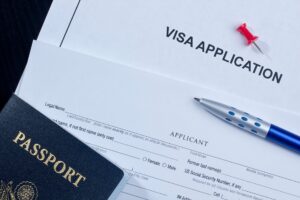If the circumstances around your immigration case have changed, you may be wondering if you can withdraw an approved I-130 petition. There are many reasons why you may want to withdraw this petition, and there are specific steps you need to take to accomplish this before a final decision is made by the USCIS. Here is everything you need to know about withdrawing an I-130 petition after approval and why this may be necessary in certain instances.
What is an I-130 Petition?
A petition for an alien relative or I-130 petition is an immigration option that allows you to petition on behalf of an immediate family member. To be able to file this petition, you must be a U.S. citizen or a lawful permanent resident, and the family member must be a spouse, parent, sibling, or child.
If your I-130 petition is approved, your family member will be granted eligibility to apply for an immigrant visa to come to the United States.
Can You Withdraw an Approved I-130 Petition?
After you have filed your I-130 petition and have received approval, unforeseen circumstances may lead to you needing to withdraw this petition. The good news is that you can withdraw an approved I-130 petition as long as you do this before the USCIS makes its final decision on the application for adjustment of status. If the USCIS has already reviewed the I-485 adjustment of status application, your petition will not be eligible for withdrawal.
Here are some examples of situations that may lead you to need to contact the USCIS about withdrawing an I-130 petition:
- Ineligibility: Even after you have gone through the application process and submitted your petition, you may learn that either you, as the petitioner, or your family member, are not eligible. You may have misunderstood the eligibility requirements, or you hired an immigration attorney who examined your case more thoroughly.
- Change of strategy: Immigration is a very complex process, and there are several different avenues you could take for any immigration situation. Because of this, you may have found a better immigration strategy if you qualify for a different type of family-based category or a different type of visa.
- Change of circumstances: The immigration process is quite lengthy, and your circumstances may change as you wait for your petition to be approved. For instance, your child may have become ineligible for an I-130 petition due to age or a recent marriage, or you may have gone through a divorce.
- Application issues: You may also wish to withdraw your I-130 petition if you foresee that there will be issues with the application. You may have filled out the petition without fully understanding the requirements or having the assistance of an immigration attorney. Withdrawing it can allow you to re-petition with a stronger application that is less likely to run into time-consuming problems.
No matter the reason for needing to withdraw your petition, the first thing you need to do is hire an immigration attorney to help you with this process.
How to Withdraw an I-130 Petition After Approval
Even if your I-130 petition has been approved, you can still withdraw this petition if your circumstances have changed or you want to go a different route. Before you do this, if you don’t already have an immigration attorney, you need to hire one who can help you navigate this process. It is vital that you withdraw this petition before the USCIS makes a final decision, as this could harm your relative chances of getting an immigrant visa at a later date.
Here are the steps you need to take to withdraw an approved I-103 petition.
Create a Withdrawal Letter
You will need to create a letter that requests a withdrawal for your petition, includes the receipt number, and includes the petitioners and beneficiaries names and birth dates. You will need to provide an explanation for the withdrawal request, providing details about your change of circumstances if necessary.
Your immigration attorney can help you draft this withdrawal letter, ensuring it is thorough and will be accepted.
Gather Documentation
After writing your withdrawal letter, you also need to provide documentation to back up the reason for the withdrawal request. This commonly includes documentation such as communication with the USCIS and proof of how your situation has been changed.
Monitor Your Case
It is crucial that you monitor the progress of your case to ensure that the cancellation goes through correctly. You can monitor your withdrawal application through the USCIS website so that you are aware of when it has been accepted or denied.
Something to keep in mind is that this is not something that is going to happen instantly, as it typically takes one to three months for a withdrawal to be approved. However, there is no predetermined or standard processing time for withdrawal requests, so this timeline may look very different depending on the situation.
When you follow the progress of your case online, you can get notified immediately when the withdrawal has been approved or denied. Otherwise, you will receive a formal decision letter.
Downsides to Withdrawing an I-130 Petition
It is essential that you carefully examine your situation to decide whether or not withdrawing your petition is the right option. In some instances this may be the only acceptable option but in others you may want to simply stick with this petition.
The main downside to withdrawing an I-130 petition is that you cannot reinstate or reverse this decision once it is put into motion. If you wish to file another I-130 petition, you will have to begin the process all over, which will put your petition at the end of the line for processing. If you are withdrawing based on any allegations of fraudulent information, this could result in the USCIS or Immigration and Customs Enforcement starting an investigation, which could lead to penalties and even jail time if evidence of fraud is found.
Hire an Immigration Attorney Today
Do you need to withdraw an I-130 petition before a final decision is made? Contact us today at U.S. Immigration Law Counsel at 800-666-4996 to speak with an immigration attorney about your case. We will deal with the government, so you don’t have to!




